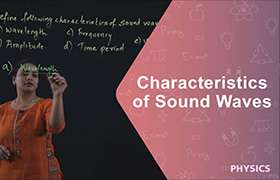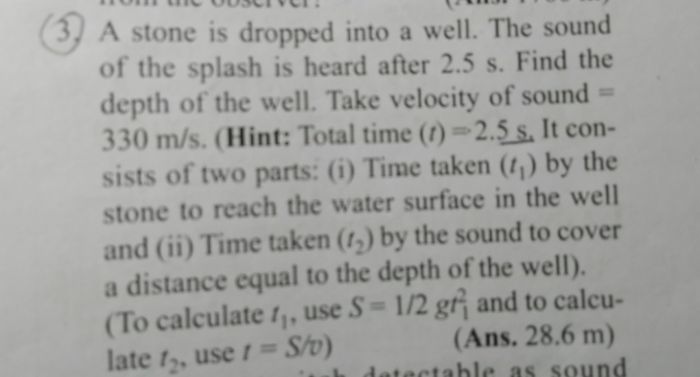CBSE Class 9 Answered
State any five differences between longitudinal ad transverse waves
Asked by | 03 Mar, 2012, 11:55: AM
In a longitudinal wave, the motion of the medium is parallel to the direction of the wave . This means that the particles move left and right which in turn makes the other particles start to oscillate. Sound waves are longitudinal waves.
Another example of a longitudinal wave is a P wave or primary wave during an earthquake. P waves are also known as compressional waves, because of the pushing and pulling they do.
A transverse wave is a wave in which the motion of the medium is a right angles to the direction of the wave.
A wave on a rope is a transverse wave. Light and other electromagnetic waves are also transverse waves.
Another type of transverse wave is the S wave or secondary wave, which is the second wave we feel in an earthquake.
Another example of a longitudinal wave is a P wave or primary wave during an earthquake. P waves are also known as compressional waves, because of the pushing and pulling they do.
A transverse wave is a wave in which the motion of the medium is a right angles to the direction of the wave.
A wave on a rope is a transverse wave. Light and other electromagnetic waves are also transverse waves.
Another type of transverse wave is the S wave or secondary wave, which is the second wave we feel in an earthquake.
Answered by | 03 Mar, 2012, 11:37: PM
Application Videos
Concept Videos
CBSE 9 - Physics
Asked by manaskumarbiswasbrb | 04 Feb, 2023, 08:35: PM
CBSE 9 - Physics
Asked by sm6878261 | 12 Jan, 2023, 07:42: AM
CBSE 9 - Physics
Asked by pooja12366764 | 25 Jan, 2022, 10:46: PM
CBSE 9 - Physics
Asked by ashishyadav | 22 Mar, 2021, 05:20: AM
CBSE 9 - Physics
Asked by Alamglassfebricartion | 16 Mar, 2021, 09:57: AM
CBSE 9 - Physics
Asked by mursaleenmalik1962 | 14 Dec, 2020, 07:18: PM
CBSE 9 - Physics
Asked by dwarakanathan.s | 19 Apr, 2020, 07:02: AM
CBSE 9 - Physics
Asked by upmasoodpassi | 05 Apr, 2020, 11:09: AM












